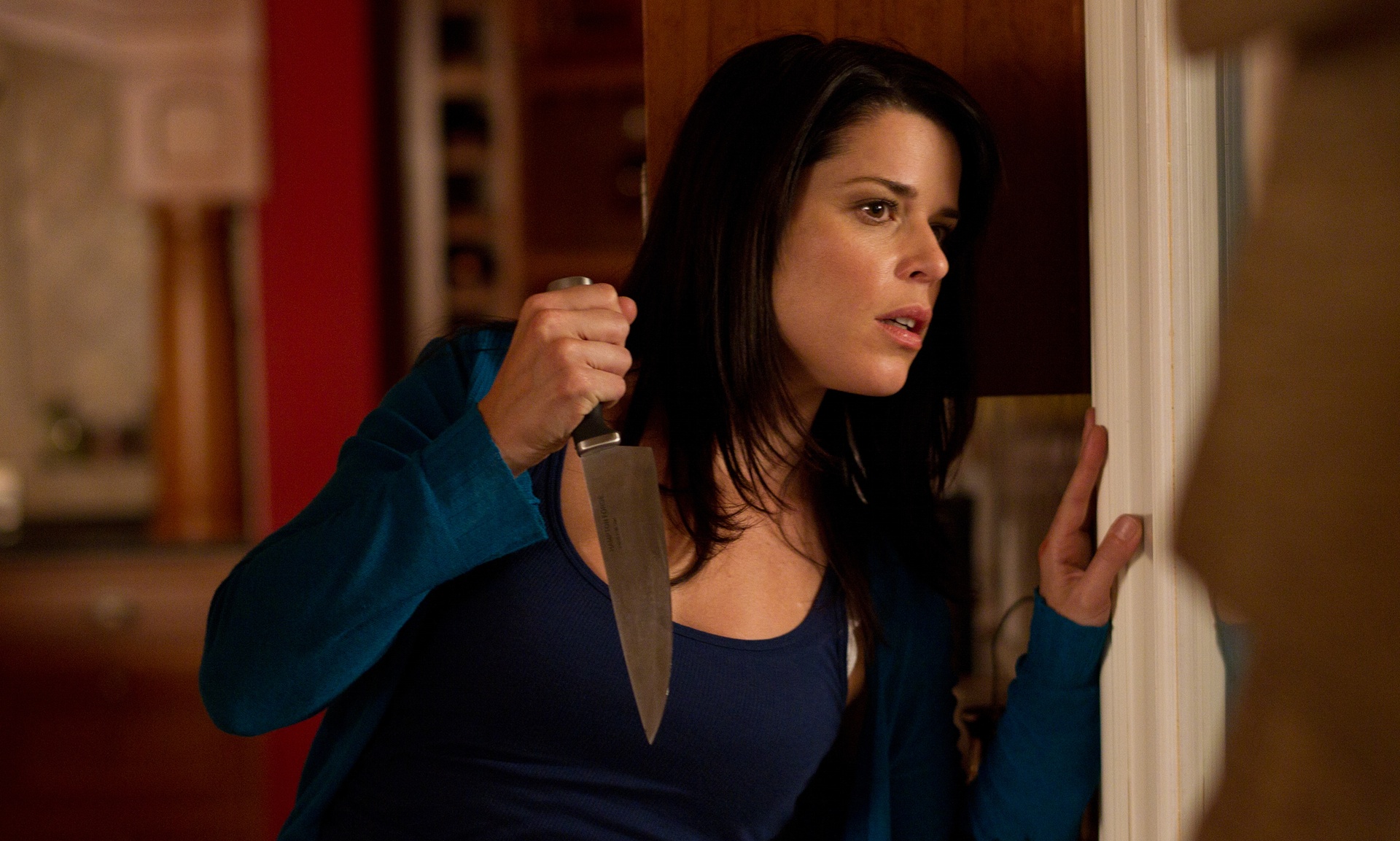1.
“The magic of cinema unlocked one man’s coma-bound world“: An amazing report from BBC‘s Tom Stafford.
“In a relatively new study, a post-doctoral fellow at Owen’s lab, Lorina Naci, has used cinema to show just how sophisticated conscious awareness can be in a ‘minimally conscious’ patient. The trick they used involved an 8 minute edit of “Bang! You’re dead”, a 1961 episode of ‘Alfred Hitchcock Presents.’ In the film, a young boy with a toy gun obsession wanders around aiming and firing at people. Unbeknownst to him, and the adults he aims at, on this day he has found a real gun and it has a live bullet in the chamber. The film works because of this hidden knowledge we, the viewers, have. Knowing about the bullet, a small boy’s mundane antics become high drama, as he unwittingly involves unsuspecting people in round after deadly round of Russian roulette. Naci showed the film to healthy participants. To a separate group she showed a scrambled version involving rearranged one-second segments. This ‘control’ version was important because it contained many of the same features as the original; the same visual patterns, the same objects, the same actions. But it lacked the crucial narrative coherence – the knowledge of the bullet – which generated the suspense. Using brain scanning, and the comparison of the two versions of the film, Naci and colleagues were able to show that the unscrambled, suspenseful version activated nearly every part of the cortex.”
2.

“The Psychology of Voldemort“: The Atlantic‘s Julie Beck investigates.
“When the killer you’re after is the most powerful Dark wizard of all time, simply knowing who he is isn’t enough to catch him. And catching him isn’t enough to stop him, since he inconveniently split his soul into seven pieces and hid six of them in objects called Horcruxes. To kill him, all seven pieces must be destroyed. Harry and Dumbledore are wading through memories to confirm Dumbledore’s suspicions that Voldemort created Horcruxes, and to figure out which objects he might have chosen. The ‘who’ is employed in the service of the ‘what’ and the ‘why.’ As in real criminal profiling, this endeavor involves a lot of inferences and conjecture. ‘From this point forth, we shall be leaving the firm foundation of fact and journeying together through the murky marshes of memory into thickets of the wildest guesswork,’ Dumbledore says. What they discover about young Tom Riddle conforms to many of the classic stereotypes about serial killers—his parents were unhappy, he was a loner, he bullied other children and tortured animals. Most importantly: ‘The young Tom Riddle liked to collect trophies,’ Dumbledore says. ‘You saw the box of stolen articles he had hidden in his room. These were taken from victims of his bullying behavior, souvenirs, if you will, of particularly unpleasant bits of magic. Bear in mind this magpie-like tendency, for this, particularly, will be important later.’”
3.

“‘Most of the Movies You’ll Want to See This Fall Will Be Independents’: Edward Zwick on ‘Pawn Sacrifice’“: In conversation with Jim Hemphill of Filmmaker Magazine.
“Filmmaker: It seems to me that one of the challenges in terms of both performance and direction – and writing – with a character like this is that you’re dealing with a protagonist who doesn’t really relate to other people in the conventional ways that we’re used to seeing on screen. Zwick: ‘I thought about that a lot, because everyone is in a relationship with Bobby but Bobby isn’t in a relationship with anyone but himself or his opponent. The idea was to have a movie that was told in two voices: there’s the public voice, the world of media and interviews and footage and matches; then there’s the very, very subjective experience we were trying to capture juxtaposed to it. So the louder the media and cultural noise, the more difficult it was for him to find that stillness internally that he was struggling with. That creates a tension, and we played on that tension often in the movie. Remember, this was the very beginning of media culture; we’re talking about the late sixties and early seventies. The Beatles had been here in ’64, but there had never been an American superstar that was created within weeks. There was this kind of wildfire touched off where Bobby Fischer became famous more quickly than anyone was accustomed to people becoming famous. I think that happens all the time now because we accept media culture as a given, but it really didn’t exist then in the same way, and if ever there was somebody who was less prepared for it I can’t imagine who that might be.’”
4.

“4-star crime thriller ‘Sicario’ delves into horror“: An excellent review from The Daily Herald‘s Dann Gire.
“The moment that Johann Johannsson’s screaming electronic score assaults your eardrums with slow crescendos of distilled dread, you realize that ‘Sicario’ will not be your standard Mexican drug lord action thriller.The Icelandic composer lays down musical tracks more appropriate to accompany invasions by crab monsters, body snatchers, mole people, Triffids or saucer people. It doesn’t seem to match a crime drama about idealistic FBI agent Kate Macer (Emily Blunt) trying to fit into the testosterone-heavy organization dedicated to protecting the United States from the influences of the Mexican cartels. Hey, give it some time, say, six or seven minutes. By then, Macer and a SWAT team bust into a cartel-run Arizona house, shoot some drug lord henchmen, then make a chilling discovery hidden within the walls: 42 corpses wrapped up in plastic, like modern-day mummies.In this single scene, we cross into ‘Texas Chainsaw Massacre’ turf, a scary, alien place that becomes a living horror story rank with unspeakable violence and disposable lines between civilization and savagery.Harshly violent, ‘Sicario’ is about violence itself, and how both the cartel and American forces wield it for their purposes. The movie’s jarring unpredictability and blunt imagery come the closest to a ‘Silence of the Lambs’ vibe that I’ve witnessed since 1991.”
5.

“‘Happy Birthday’ Copyright Invalidated by Judge“: As reported by Ben Sisario of The New York Times.
“A judge ruled on Tuesday that the long-claimed copyright on ‘Happy Birthday to You,’ the most popular tune in the English language, is not valid. The decision, by Judge George H. King of United States District Court in Los Angeles, is a blow to the music publisher Warner/Chappell and its parent company, the Warner Music Group, which have controlled the song since 1988 and reportedly still collect some $2 million annually in licensing fees for it. If the judge’s ruling stands, ‘Happy Birthday to You’ would become part of the public domain. ‘Since no one else has ever claimed to own the copyright, we believe that as a practical matter, this means the song is public property,’ said Mark C. Rifkin, a lawyer for the plaintiffs. The case, filed in 2013 by Jennifer Nelson, an independent filmmaker planning to make a documentary about the song, has been closely watched as a challenge to long copyright terms and corporate control of common culture. Judge King’s 43-page decision delved into the complex history of the song — a paper trail of copyright registrations and yellowed songbooks that goes back more than a century. The song’s melody can be traced to ‘Good Morning to All,’ a song written by Mildred Hill and her sister Patty, a kindergarten teacher in Kentucky, and first published in 1893 by the Clayton F. Summy Company.”
Image of the Day

The Guardian‘s Anne T. Donahue revisits “college horrors at pop culture’s deadliest campuses.”
Video of the Day
Doug Walker, a.k.a. The Nostalgia Critic, and his indispensable partner in criticism, Rob Walker, at ChannelAwesome.com, have crafted a truly glorious review of “Mad Max: Fury Road,” recreating the film without the aid of clips.












